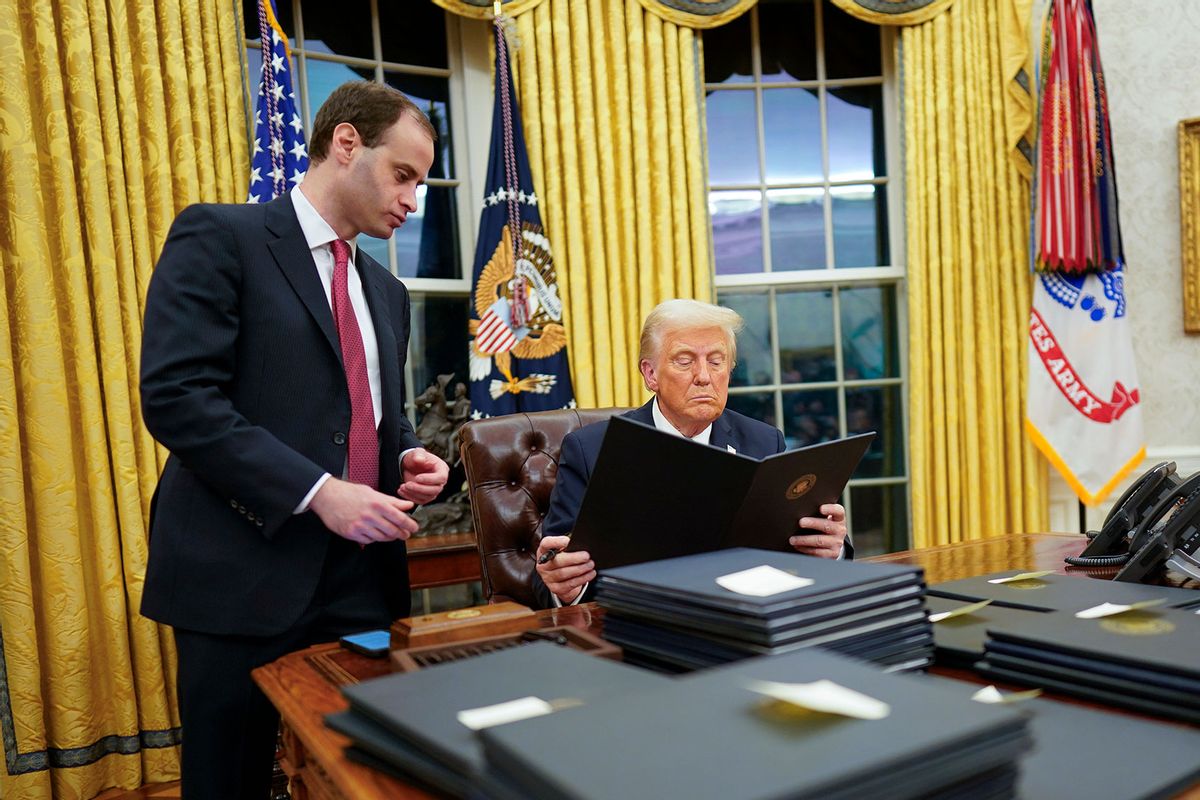In the Trump administration’s arguments defending his order to suspend birthright citizenship, the Justice Department called into question the citizenship of Native Americans born in the United States under the 14th Amendment, citing 19th-century law that excluded Native Americans from birthright citizenship.
In a case on Trump's birthright citizenship executive order coming out of Washington, Justice Department attorneys quote the 14th Amendment, which reads that “All persons born or naturalized in the United States, and subject to the jurisdiction thereof, are citizens of the United States and of the State wherein they reside,” and hang their one of their arguments on the phrase “subject to the jurisdiction thereof.”
“Under the plain terms of the Clause, birth in the United States does not by itself entitle a person to citizenship. The person must also be ‘subject to the jurisdiction’ of the United States,” the filing reads.
The Justice Department then goes on to cite the Civil Rights Act of 1866, which predates the 14th Amendment by two years. The Justice Department attorneys specifically cite a section of the act that notes that “all persons born in the United States and not subject to any foreign power, excluding Indians not taxed, are hereby declared to be citizens of the United States.”
The Trump administration then goes on to argue that the 14th Amendment’s language — the phrase “subject to the jurisdiction thereof” — is best understood “to exclude the same individuals who were excluded by the Act —i.e., those who are ‘subject to any foreign power’ and ‘Indians not taxed.’”
The Justice Department attorneys return to the topic of whether or not Native Americans should be entitled to birthright citizenship later in their arguments, citing a Supreme Court case, Elk v. Wilkins, in which the court decided that “because members of Indian tribes owe ‘immediate allegiance’ to their tribes, they are not ‘subject to the jurisdiction’ of the United States and are not constitutionally entitled to Citizenship.”
“The United States’ connection with the children of illegal aliens and temporary visitors is weaker than its connection with members of Indian tribes. If the latter link is insufficient for birthright citizenship, the former certainly is,” the Trump administration argued.
Read more
about birthright citizenship



Shares